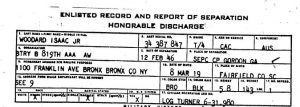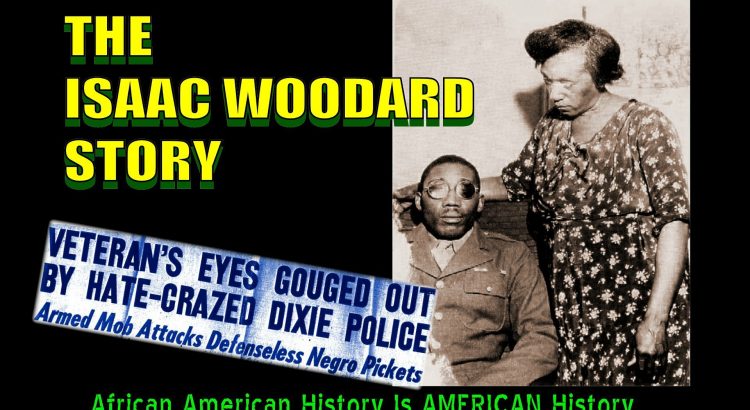Sgt. Isaac Woodard World War II returning veteran brutally beaten by SC police chief, Left permanently blind, Removed from Greyhound bus while heading home
From the AP.
“Hours after leaving military service behind in 1946, a decorated African-American World War II veteran still wearing his uniform was removed from a Greyhound bus while heading home, beaten by a white South Carolina police chief and left permanently blind.
Sgt. Isaac Woodard’s brutal encounter with the small-town police official horrified many Americans and prompted cries for justice on behalf of the 26-year-old former soldier. His case even helped spur President Harry Truman’s drive to integrate the U.S. military beginning in 1948.
Now, Woodard’s supporters are seeking to erect a civil rights marker honoring him in the town where he was attacked, saying his ferocious beating helped draw U.S. attention to the discrimination and mistreatment of blacks returning home from war.
He deserves recognition for his place in the struggle for civil rights, they say.
Historians say Woodard’s case — and the outcry it prompted — drove the first cracks into American segregation years ahead of the civil rights era.
“Isaac Woodard was the example of how horrible things were for black Americans, particularly for those coming home” after World War II, said historian Michael Gardner and an expert on the Truman administration.
Shortly after Woodard was honorably discharged from the Army, he was beaten repeatedly and blinded in February 1946 by white police Chief Lynwood Shull in Batesburg, South Carolina. Police accused him of drunken and disorderly conduct. The beating drew the attention of the NAACP, whose representatives met with Truman to discuss the treatment of African-American troops returning to American society.
After little was done about Woodard’s beating for eight months, federal prosecutors ultimately charged Shull with violating Woodard’s civil rights. An all-white jury took less than 30 minutes to find the chief not guilty.
“I was no harsher than was necessary to complete the arrest,” the police chief told The Associated Press in 1946. “I hit him across the front of the head after he attempted to take away my blackjack. I grabbed it away from him and cracked him across the head.”
Woodard was quoted in the same article as lamenting a lack of justice. He also said of the chief: “I have more sympathy for him than he had for me.”
Woodard lived in the Bronx, New York, for the remainder of his life and died in 1992 at age 73.”
Read more:
https://www.apnews.com/5510a1a3d28344568164de3419e0d747




